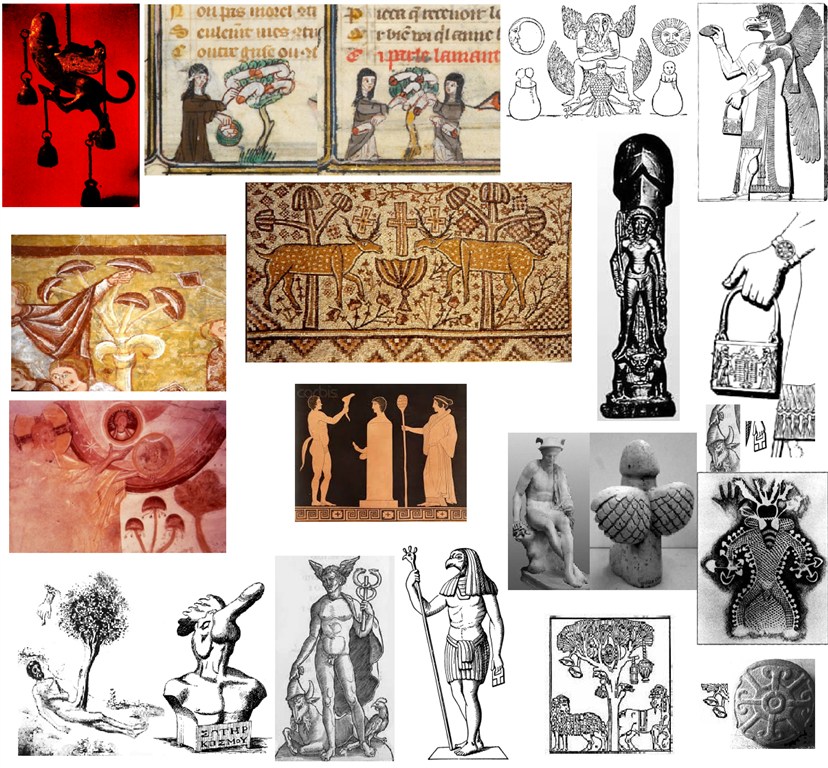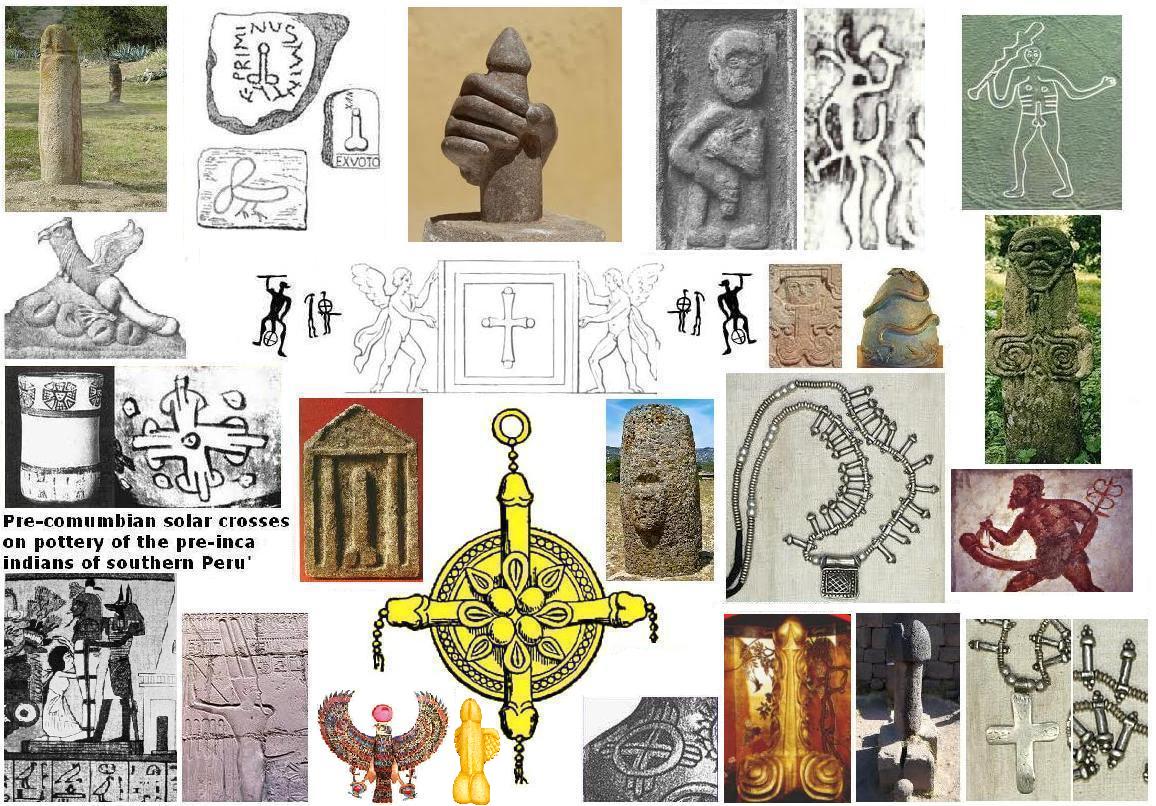Se il mio commento non e' gradito, puo' togliersi senza problemi....
La natura ambigua dell'amore,
della politica, della religione e di conseguenza degli umani...
Ambigua e' la nostra cultura,
le nostre religioni dove quello che
era anticamente sacro come il sesso, le droghe,
il cannibalismo rituale dei santi,
le offerte di umani/animali/piante alle
nostre ipotetiche divinita' precedenti,
erano considerati atti sacri divenuti
in seguito profani dagli stessi poteri che
cambiavano le pratiche aggiornandole con altre
e rivaleggiando tra di loro per territori,
risorse e schiavi umani in modo molto ma molto ambiguo
tramite l'utilizzo dei credi e delle razze predilette
da questo o quel Dio occulto che mai nessuno ha visto
e mai nessuno vedra' perche' non era certo un Dio, l'essere
dai mille esseri ambigui che cambiavano faccia/predica/religione/politica di
era in era per riadattarsi alle nuove intelligenze/necessita' degli
umani e proseguire con la loro ambiguita' sempre piu' ovvia,
a chi non e' drogato/accecato di droghe, culti della old/new age
o sete di gallegginismo/notorieta'/denaro......
La verita' non verra' mai a galla da sola, perche' da sempre e' vergognosa
ed ambigua, ma bisogna andarla a ricercare da
noi stessi, non sui libri, classi di esoterismo/religione e nelle scuole che non ci
insegnano nulla di quello che un essere umano dovrebbe sapere/capire del suo lontano
passato che ha creato quello successivo ed il presente, dei credi precedenti
e divinita' precedenti assorbite e rimodellate dalle religioni successive che hanno segnato
l'inizio e fine/distruzione ciclica delle varie epoche, ma la verita' e' ancora
accessibile perche' i testi/immagini/essenze del passato, non sono stati tutti distrutti come
avevano deciso i potenti per non farci sapere/capire l'ambigua verita' occultata.
le verita' si intravedono ancora negli spezzoni del passato che sono ancora presenti
sull'intero pianeta, come lo e' la natura, ambigua nel suo operare, dare alla luce le
sue creature, nuove forme di vita e tutto e tutti si cibano delle altre forme di vita fin
dall'inizio dei tempi su tutte le scale e questo e' molto ambiguo per una entita'
considerata divina, amorevole, ma che oltre a crearci, divorarci e distruggerci
ciclicamente era dopo era in mille modi diversi ogni volta che le colonie di umani
raggiungono il soprannumero od una intelligenza eccessiva e pericolosa per i poteri
politici da sempre controllati e dominati da quelli religiosi fin dai tempi di enki,
e non credo che molto sia cambiato, e puntualmente ogni gruppo di umani che emergono
e si credono superiori, invincibili, evoluti, potenti, sprofondano nel nulla grazie
alle nostre ambigue divinita' creatrici divoratrici di umani che cambiano pelle,
prediche e favolette religiose riadattandosi ai tempi per continuare a seminare
ambiguita' che io non approvo perche' se le nuove divinita' sono figlie di quelle
precedenti e sono un tutt'uno con esse, quelle precedenti erano cannibali,
massacratrici divoratrici di umani come riportato storicamente in molti contesti non
sono sui testi delle piramidi, sulle pratiche relgiose parallele degli altri movimenti
ambigui etc...che hanno cambiato prediche mascherandosi sotto nuove mentite spoglie
che io trovo davvero ambigue perche' quelle spoglie appartengono a divinita'
precedenti assorbite e rimodellata nelle culture religiose successive, spesso razziste,
guerrafondaie, sterminatrici di rivali o di infedeli, che da sempre
controllano le politiche del mondo o sbaglio? Io sono diretta e non ambigua, giusta
o sbagliata, mostro la mia vera faccia ed il mio vero nome ed i miei reali pensieri
percezioni che davvero spero siano errate altrimenti e' davvero triste quello che
la cultura esteriore ha creato invece di elevarci e farci divenire esseri piu'
intelligenti onesti veri......papagalli che ripetono a memoria i ritornelli letti,
appresi senza usare un minimo di intelligenza propria, non significa essere umani,
ma ben altro....scimmie che imitano le mode tendenze del momento per sentirsi ganze,
non significa essere intelligenti...ma scimmie e pappagalli con lauree e culture da
sfoggio incapaci di usare intelligenza superiore per fare serie analisi sulle
pappagallate apprese e riepetute per ammaliare le folle a cui tanto piace
ascoltare o leggere e credere favolette...e questa la dice lunga sull'intelligenza
degli umani che per me e' molto ambigua...
Il culto fallico di Ermete, tre volte fallico come enki/osiride/serapis
ed altre divinita' precedenti assorbite dai miti successivi:
L'occhio fallico del demonio/fallo/uccello di enki, creatore delle sacre arti,
dai tanti nomi, storie epiche leggende riadattate di era in era
ai nuovi formati???
Forse si, forse no...ma miliardi di coincidenze non possono
certo chiamarsi piu' "tali"....
Nessuno davvero ha compreso perche' il fallo di Enki, era considerato un Dio creatore dalle due acque,
fiumi, colonne, aiutanti, sepenti, ali etc... e perche' Enki, era considerato il dio fallico e rappresentato
con un serpente che e' anche il simbolo del fallo ed una testa umana, che sarebbe la testa
superiore del bambino/figlio/uccello/bestia etc...
L'occhio fallico del Dio creatore che usava i culti fallici per viaggiare nel nostro corpo/anima/psiche/dna...
Molto ambigua come figura di ermete, creatore delle nuove razze umane che
si ciba della sua creazione/seme...
Ambigua la coltivazione ed adorazione di falli/serpenti/omphalis del Dio, oppure funghi chiamati falli/occhi
della terra che schiacciarono/divorarono e sostituirono la creazione precedente a scadenze delle grandi epoche o stagini cosmiche?
Leggere tra le righe quello che da sempre i poteri religiosi che
controllavano quelli politici fin dai tempi di Enki/Serapis/Osiride
ci hanno nascosto?



[Modificato da sp3ranza 27/06/2017 01:41]